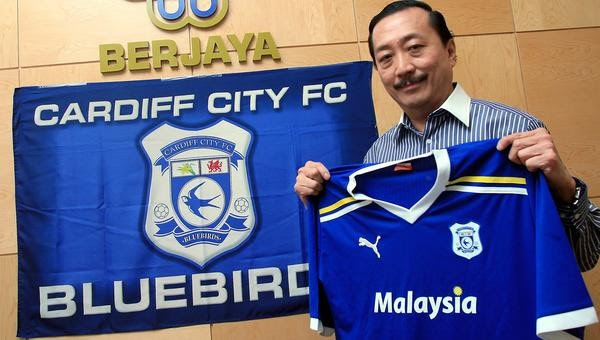Thursday, September 20, 2012
The Fantasy Economy of Football
While the likes of Greece, Spain, Portugal and Italy continue to bleed the Eurozone dry of money and America struggles to create new jobs for its people in a global economy that remains as volatile as it was since it first plunged into recession in 2008, one sector in the world continues to blossom at rates pre-2008 - or so it appears.
Football has never really operated to the rules of the world economy - transfer fees were amongst the highest less than a year after the big recession in 2008. This was also about the time Manchester City were taken over by Sheikh Mansour's Abu Dhabi United Group with their billions of dirhams and staking their claim to be the richest football club in the world.
Yes there have been busts since the noisy neighbours also became the richest neighbours in Manchester. Liverpool fans are still angry at the way Texans Gillett and Hicks left the club in huge debts which the club is still struggling to reverse. Racing Santander and Blackburn's apparently wealthy owners arrived promising Champions League football, only to see both clubs relegated from the top flight after 10 years of being a part of it. Sunderland, Birmingham City and Aston Villa fans are also wondering where all that investment has gone from their rich foreign owners.
And then there's Rangers, the biggest football club north of the border, liquidated and reborn as a club playing in the Scottish Third Division.
Amazingly amidst all that, there have been quite a few more sugar daddies popping up the false economy of football since Roman Abramovich kicked off the age of real-life fantasy football by buying Chelsea in the summer of 2003.
While David Cameron is struggling to rejuvenate the British economy, Kuwaitis are trying to rejuvenate a former giant, i.e. Nottingham Forest, while Malaysians are trying to revive Welsh football, even changing the home colours of Cardiff City from traditional blue to red, thinking it would get the club back into the top flight for the first time in years.
And the sugar daddies are everywhere on the continent too. Step aside Inter, AC Milan and Juventus, it's Malaga and Paris St Germain (PSG) who have the power in the player market now outside the Premier League, Barcelona and Real Madrid stratosphere. After all, PSG bought Zlatan Ibrahimovic and Thiago Silva in one huge move from AC Milan along with rising Argentina stars, Javier Pastore, from Palermo and Ezequiel Lavezzi from Lazio.
Hello? Didn't Italy have the richest clubs in the world? Weren't they the ones always buying the best players in the world? Oh wait that was 20 years ago. Italy's Serie A isn't even rated in the top 3 leagues in the world at this time.
In fact, I even wonder if the richest league in the world is the Premier League. I think that title should go to Russia's Premier League given many of its clubs are bankrolled by the oil tycoons scattered throughout this massive country. Hulk and Axel Witsel were brought to Zenit for lots of money. Then there's previously unknown Anzhi Makhachkala who hired legendary coach Guus Hiddink and bought Samuel Eto'o. Russia's league will surely get better as it has the money to buy the best players so even the Premier League, La Liga and other more "traditional" leagues better watch out especially given Russia's growing economy compared to the rest of Europe.
So is the false economy of football a global phenomenon? Well look closer to home at the A-League. Australia's mining industry has definitely helped prop up the country while the storm rages around, but it has also meant there are A-League clubs with the money like Newcastle, Sydney FC and Melbourne Victory. There was Harry Kewell and Brett Emerton last year but to get Alessandro del Piero to come to Sydney is no mean feat. Del Piero will not come cheap even if he will be earning a bit less than he did at Juventus. Newcastle also looked to have signed former England and Liverpool striker, Emile Heskey - he will do very well in the A-League - and West Sydney were seeking former German captain, Michael Ballack.
Ah yes, while people are struggling to find jobs in many parts of Europe and the USA, football's economy is growing like never before. The bubble will eventually burst but right now with football's popularity at a sky high and the right customers, i.e. the wealthy Chinese, Southeast Asians, Russians and Arabs, in the market to take over traditional football clubs.
Subscribe to:
Post Comments (Atom)

No comments:
Post a Comment